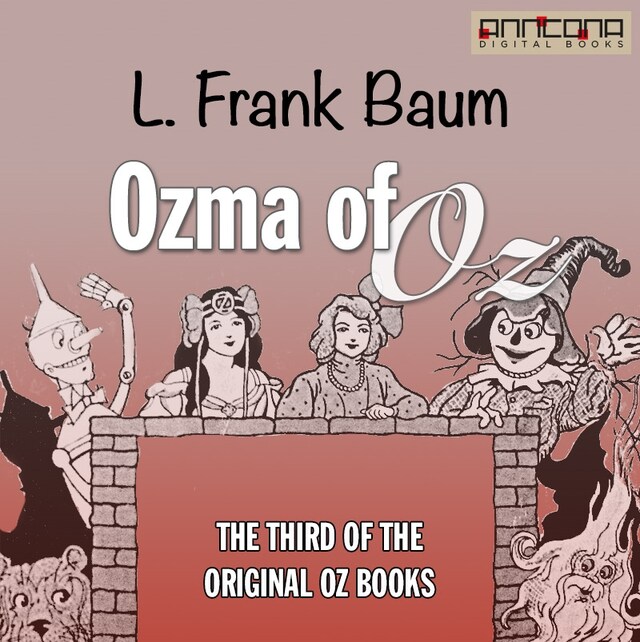
Ozma of Oz
Description of the book
Ozma of Oz: A Record of Her Adventures with Dorothy Gale of Kansas, the Yellow Hen, the Scarecrow, the Tin Woodman, Tik-Tok, the Cowardly Lion and the Hungry Tiger; Besides Other Good People too Numerous to Mention Faithfully Recorded Herein published on July 30, 1907, was the third book of L. Frank Baum's Oz series. It was the first in which Baum was clearly intending a series of Oz books.
It is the first Oz book where the majority of the action takes place outside of the Land of Oz. Only the final two chapters take place in Oz itself. This reflects a subtle change in theme: in the first book, Oz is the dangerous land through which Dorothy must win her way back to Kansas; in the third, Oz is the end and aim of the book. Dorothy's desire to return home is not as desperate as in the first book, and it is her uncle's need for her rather than hers for him that makes her return.
The Oz books form a book series that begins with The Wonderful Wizard of Oz (1900) and relate the fictional history of the Land of Oz. L. Frank Baum went on to write fourteen full-length Oz books. Even while he was alive, Baum was styled as "the Royal Historian of Oz" to emphasize the concept that Oz is an actual place. The illusion created was that characters such as Dorothy and Princess Ozma related their adventures in Oz to Baum themselves, by means of wireless telegraph.
Lyman "L." Frank Baum (1856-1919) was an American author of children's books, best known for writing The Wonderful Wizard of Oz. He wrote thirteen novel sequels, nine other fantasy novels, and a host of other works (55 novels in total, plus four "lost" novels, 83 short stories, over 200 poems, an unknown number of scripts, and many miscellaneous writings), and made numerous attempts to bring his works to the stage and screen. His works anticipated such century-later commonplaces as television, augmented reality, laptop computers (The Master Key), wireless telephones (Tik-Tok of Oz), women in high risk, action-heavy occupations (Mary Louise in the Country), and the ubiquity of advertising on clothing (Aunt Jane's Nieces at Work).
Baum's avowed intentions with the Oz books, and other fairy tales, was to tell such tales as the Brothers Grimm and Hans Christian Andersen told, making them American and bringing them up to date by making the characters not stereotypical dwarfs or genies, and by removing both the violence and the moral to which the violence was to point. Although the first books contained a fair amount of violence, it decreased with the series; in The Emerald City of Oz, Ozma objected to doing violence even to the Nomes who threaten Oz with invasion. His introduction is often cited as the beginnings of the sanitization of children's stories, although he did not do a great deal more than eliminate harsh moral lessons. His stories still include decapitations, eye removals, maimings of all kinds, and other violent acts, but the tone is very different from Grimm or Andersen.
Language:
English




